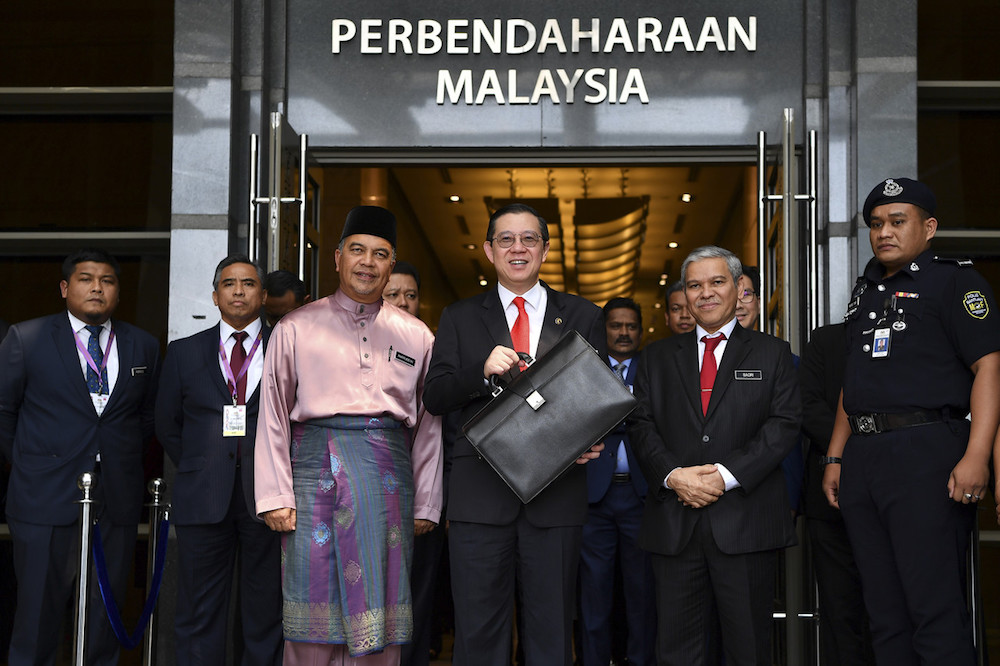KUALA LUMPUR, Oct 11 — Malaysia’s fiscal stance underpinning Budget 2020 is “appropriate” and, though likely to cause a mild deviation from the government’s original fiscal consolidation path, will not immediately weigh on the country’s current global and Asean-scale ratings, said RAM Rating Services Bhd (RAM Ratings).
This is thanks to the country’s resilient economic fundamentals, it said in a statement today.
The government currently carries global and Asean-scale ratings of gA2/Stable and seaAAA/Stable, respectively, by RAM Ratings.
The rating agency views the country’s fiscal stance as supportive of domestic demand activity and appropriate against the backdrop of the highly uncertain global growth conditions.
It also said the fiscal deficit projection of 3.2 per cent of gross domestic product (GDP) for 2020 (2019 estimate: 3.4 per cent) highlighted the government’s ongoing commitment to fiscal consolidation, despite missing its original 3.0 per cent target.
“However, this near-term budgetary forecast may be at risk as the government’s economic growth assumption of 4.8 per cent for 2020 (2019 estimate: 4.7 per cent) is optimistic amid volatile external conditions.
“While the Medium-Term Fiscal Framework 2020-2022 indicates that the government intends to keep to a fiscal consolidation path, some of these targets may be challenging to achieve, particularly if the current growth trajectory falters,” it added.
Weaker-than-anticipated economic conditions would negatively affect the government’s revenue target, RAM Ratings said.
The government has forecast a higher revenue of RM244.5 billion for 2020 (after excluding one-off Petronas special dividend of RM30 billion), largely owing to robust projected growth in corporate income taxes of 6.7 per cent. It also expects individual tax collection to rise by 6.1 per cent with the introduction of a new high tax bracket.
“Over the long term, the fiscal revenue structure is anticipated to improve due to previously introduced new revenue items like digital sales tax, taxes on sugary beverages and passenger levies for air travel, tighter monitoring of tax collections following the conclusion of the Special Voluntary Disclosure Programme, as well as other ongoing measures to improve tax administration and enforcement,” the rating agency said.
RAM Ratings also expects government debt to remain elevated at 51.9 per cent of GDP at end-2019 and constrain fiscal flexibility.
“Notably, budgeted debt service charges for 2020 are significant at 14.3 per cent of estimated revenues.
“This concern is exacerbated by the government’s other committed debt obligations — generally issued by strategic entities -- which are projected to amount to 16.7 per cent of GDP by end-2019,” it added.
In addition, a sizeable portion of the committed debts is expected to become due in 2022 and 2023 and RAM Ratings said this might pose a burden on government finances if not managed well as these were foreign currency-denominated debts.
“For the longer term, the government has reiterated its intention to pass a Fiscal Responsibility Law in 2021, which would likely commit Malaysia to additional fiscal limits and improve budgetary transparency.
“If proper fiscal caps and controls are well defined, the legislation would be a step in the right direction to enhance Malaysia’s long-term fiscal outlook, “ RAM Ratings concluded. — Bernama






















